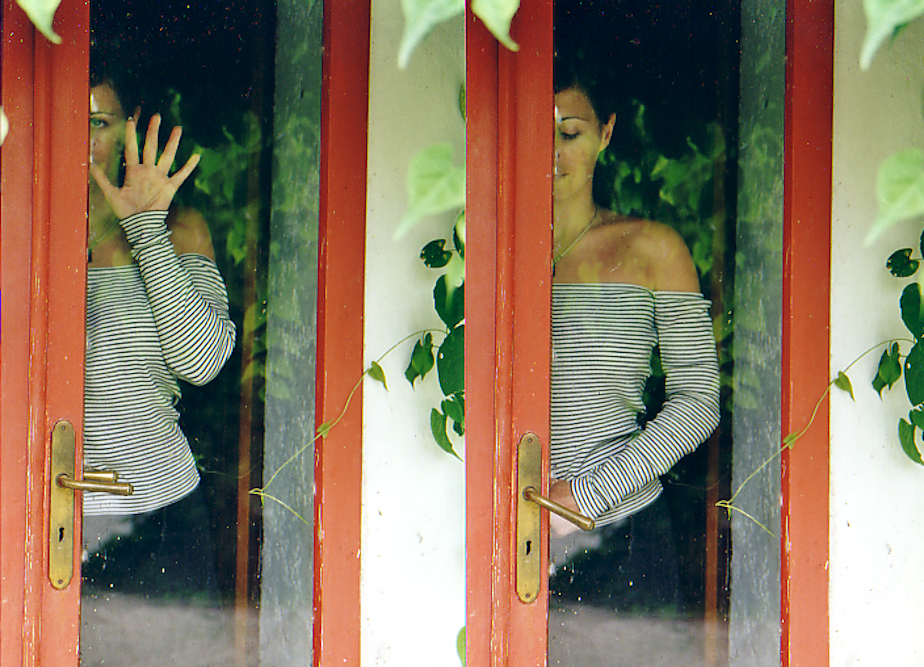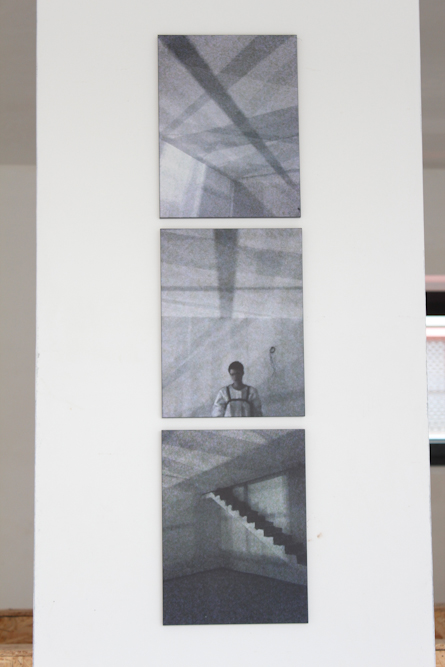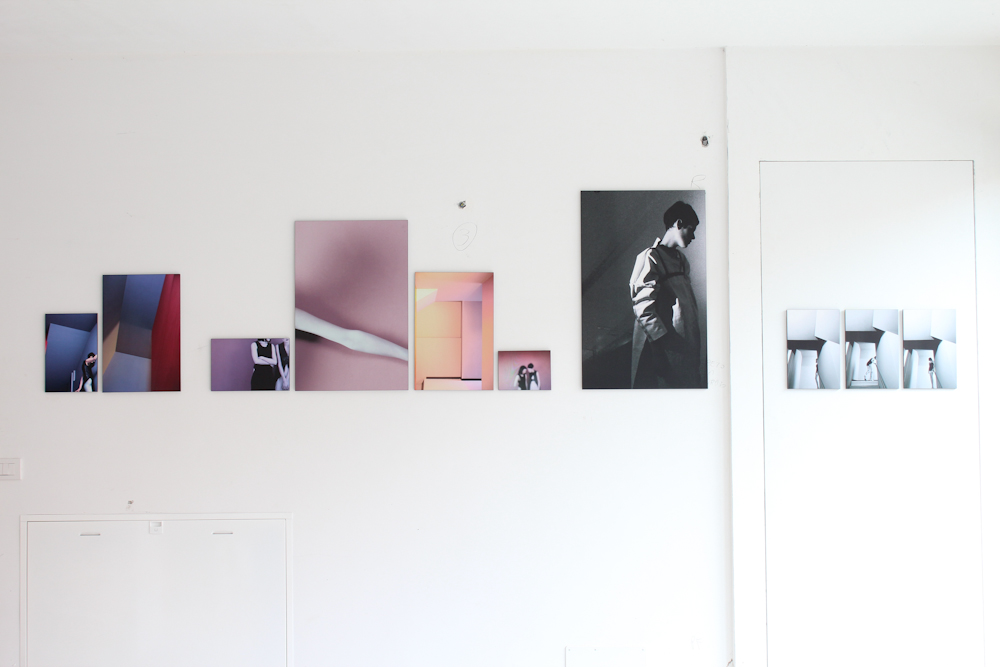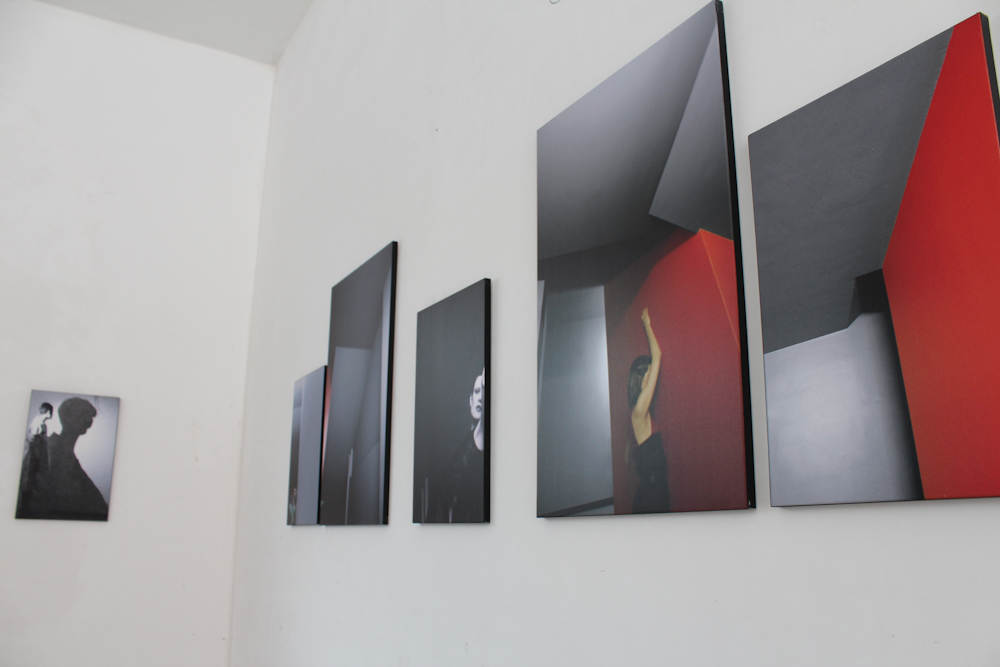Your story in 10 lines (or more)
There isn’t much typical in my life.
Miraculously pulled-out unharmed from a car accident at the age of fifteen months old which made me orphan having lost both parents, I was adopted by an Italo-Colombian family with whom I spend my whole childhood and pre-adolescence in Cali, Colombia. From this strong, violent, contradictory land I derive my emotional development and possibly the first traces of my artistic personality. The richness of emotions and the vigor of sentiments will remain a quality of mine, unforgettable like the fleeing memory of colors, smells, music, dances, spicy flavors but also – although perceived from afar – of misery, crime, desperation.
Unpredictable family situations brought me back to the haze of the Po valley to live through some of the most varied life styles to which I owe the versatility and multiplicity but also the anxiety of my way of thinking.
I practiced artistic activities such as theater and dance whilst I was already on the pathway towards what was to become my primary profession, after my diploma at DAMS (Master of Arts and Theatre, Editor’s note) accomplished at the University of Turin.
I’ve met with well-being and malaise, exaltation and discomfort, I’ve travelled the world both sides of the ocean with the camera strapped over the shoulders and with the heart “in hand”, in the never-ending search of faces, of actions, of objects, of landscapes, which at times to my own disbelief I’d see transfigured into art.
It still happens that I amaze myself.
The joys and pains of working as director and photographer
While I work as director, the actor in my view becomes the role he’s interpreting. I share with him the turmoils, the difficulties, the successes; he’s my son and he’s my father in some sort of dichotomy of symbiosis (please allow me the oxymoron) where our previous interpersonal relationship – like/dislike, esteem/disesteem, affinity/divergence – darkens, reclaiming all its human aspects, once the work is over.
Rather than feeling joy and pain, it all results in tension and relief.
Photography is hard, so hard. An embryo of a project takes shape, often as response to unheralded stimuli, then suggestions come crowding round, memories, aborted intentions and images, many images, some so beautiful that they are impossible to refuse, others loved but wandering, then cultural references emerge and in comes apprehension, the anticipation for the “moment”, the conception may last weeks, sometimes months, I know I must not give in to frustration for uncertainty, that insight often reaches whilst the mind is relaxed, when I’m about to fall asleep or on the verge of waking up.
Then there is the practical side, necessary for the execution, where also technology is art, and not, as it might seem the handmaid of art. Yes, it’s difficult.
Tell us about some special/unexpected/moving meetings
Andreina: teacher, mentor, mother, person, distinguished by consideration, energy, by the creativity she makes available to others.
She never asks anything for herself, never complains about anything, never requires anything and doesn’t seem to regret anything: she moves forward in life with vigor and dignity and the joy for living.
She’s familiar with pain, still when she’s in the company of others it seems like pain has never brushed against her. Many have certainly let her down, it happens to all: but when she speaks and describes, it seems like everyone has always been nice to her, and that she has hope in everyone.
Sometimes she cooks for friends, she has a lovable relationship with food applying the same diligence she affords to her multiple intellectual actions. Her dinners are refined aesthetic compositions, but they have nothing formal about them: it’s obvious they’re done out of love and for love’s sake.
She is an example and a point of reference.
What does society do for you?
Society stimulates my mind; it provides me her multifarious essence, changeable and therefore often continuously new and unpredictable. She is my interlocutor, it welcomes me and whether she appreciates or discredits me nevertheless she incentivizes me. Society justifies my being an artist.
What do you do for society?
Good question, I often ask myself too.
Some think that the artist, the real one, with a capital A, works only for himself and for the need to express himself. I’m an artist with a lower case a, I work indeed for society, to communicate thoughts, emotions, to suggest – precisely – to suggest ways of looking which the ordinary observer, too engaged with daily issues, might overlook.
In my works, I don’t leave much room for the unbiased: beauty is heart rending, ugliness is chilling or repulsive, luminosity and darkness are blinding, one for excess the other for shortage of light.
I would like my works to be a calling, an invitation – this is my objective – for my interlocutors, that is everybody, to get ’in touch’.
A beautiful experience, which has happened to you recently
Three years ago I had a son. Common answer, but it becomes common – a word, a phrase, an affirmation – when it answers exactly to the needs and expectations of the majority. It’s the value of commonplace.
Birth is the most common of events, together with death, and nevertheless both bring about emotions incomparable with others however strong they may be.
An unwarranted happiness came over me, an irrational and cosmic fulfillment. The miracle of procreation.
Then, the bringing up of a son in preparation to life calls for the need to re-examine all the basics, all the convictions, to review them under the daylight of a still uncertain future but liable of predictable, refusing that total immersion in the present which is typical of the creative process, in the moment of conception.
My mind has been supplanted by a new kind of imagination, which has cleared away the decks from the superfluous and the dispersive.
A culinary passion
Avocado, ancient pre-Columbian fruit originating from that part of Latin America, land where my being well rooted itself.
The skin, smooth and shiny and green or brown and wrinkled and dull to the touch already full of promises: submissive to the blade that halves it, avocado offers you, around the large ovoid seed its soft and buttery pulp which blends well with the fluidity of oil, the richness of salt, the aromatic quality of balsamic vinegar, the aggressive quality found in Worchester sauce.
A longish spoon of small proportions is the ideal piece of cutlery to savor it in all its delicate fragrance.
For guacamole it’s crucial to have that pungent and perfumed chilly which grows around the lands in the south and a gentle hand that minces, neither too much nor too little, the onion, just to the right smithereens barely resisting the eager teeth of the lucky tablemate.
Your favorite drink
My favorite drink is Champagne and I’m a little sorry about it. I’m sorry because if it’s true that literature overflows with refined and well-read consumers of Champagne; it’s equally true that it’s the preferred wine of showgirls and playboys.
And I’m sorry because quite rarely I can gratify myself with some.
So to paraphrase Lili Bollinger, lady of the well-known Maison, changing the indicative of reality with the conditional of doubt, I’ll say that “I would drink Champagne when happy and when sad. Sometimes I would drink it when I’m alone. When I have company I would like to offer it. I would sip it when I’m not hungry and, when I have some, I would sup some to go with food. Otherwise I wouldn’t even touch it, unless I end up feeling thirsty”.
The music or a book that accompany you
A lot of music: I feel, vibrating in the blood the marimba of maestro Gualajo (Colombian) and all the afro-Colombian drums which entice me to move even if the temperature is hot and humid; I only need a few notes by the Estonian composer Arvo Part to slip slowly into my dramaturgy and the same thing happens with the 5th symphony, IV adagietto by Mahler; I love picturing the tents moving in the wind with the “swing” by the Californian Chet Baker; and many, many others that have me transcending myself, lifting me up and giving me joy to the point of tears, the list would be infinite, but here I’d like to remind of the Roman guitar player Lili Refrein brilliant chameleon who with her loops for guitar and voice condenses operatic song, folk dance, progressive rock, metal, baroque music and lullabies.
Many books: in particular Garcia Marquez with “ The incredible and sad story of the candid Erendira and her heartless Grandmother” and James Baldwin with “The evidence of things not seen” which I read in 1985 in Italian, when I still hadn’t quite grasped this language. I picked it up a bit by chance at the library, and after having finished it I decided to buy it because I felt it had to keep me company during the flowing days of my life. I was 15 years old. I haven’t reread it since. Baldwin’s words enlightened me on the moral responsibilities we have towards the preconceptions, the values, the actions and towards all which is ignored by us.
I had also read some other books of his: and since then some of his reflections never let go of me: “children have never really been good at listening to adults, but have never failed in imitating them”; and on the subject of the artist: “The main trait of the artist is that he must actively pursue that condition which many human beings must avoid: the condition of being alone”.
Unfortunately I’m not able to literally quote from memory his words “you may take a man away from his country but you’ll never take a country away from a man’s heart”, words still engraved within me and it’s here I really became aware of the possibility that all can be stolen, taken away, forgotten, lost, but not the things you carry within you. I could in fact give away the books I still have of his: what had to be kept back is there beyond owning the hardcopy.
A talent that you have and one that you’re lacking.
I have a talent for creativity in art just as in everyday life. I’m not afraid of ideas being stolen because my mind yields them like rain, like hailstones (and at times like hailstones, they beat down and hurt), freewheel and orderly, overlapping and intersected or else lined up like little toy soldiers, too many to be able to use all of them and this is the unsettling facet.
I’ve the presumption of believing myself able to become that much of a new person each day as not to prove boring to friends, repetitive to pupils, nauseating towards clients. I can adjust, find alternatives, answer constructively to the inevitable frustrations of life – small but not only – from misfortune to pain, I feel able to provide some fresh contribution within the small section of society I happen to find myself working in, either in the private or in the professional.
A talent I don’t have? All the other ones.
What have you learnt from life?
I’ve learnt – and I quote Ungaretti – that “you serve life by living it”, in the sense that of course life offers you its multifarious gifts, in the good and bad, frequently in a holistic view of the world (my own), entangled and confused, sharing them out without thrift, but prices are somewhat high. The person is called upon to have the willingness to not hold back, and expose himself even if having to renounce the wise warnings put forward by (absit iniuria verbis) the so called conformists.
Translation by Paolo Witte, courtesy image Stefania Bonatelli



